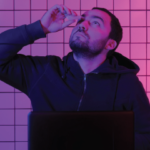Also, clinical cohorts in Europe appear to relocate less frequently than do Americans, and their healthcare system allows easier access to follow-up. As a result, the current data available are now largely based on the slow, but steady, clinical advances made by these European groups.
The greatest nightmare in rheumatology clinic is the SS patient with vague neurologic symptoms. The patient describes many complaints that limit their quality of life and few objective laboratory abnormalities. We grew up in an age of RA with high ESR and CRP or SLE with glomerulonephritis. Each of these conditions was suitable for double-blind studies with straightforward procedures and outcomes.
We were never exposed to multiple sclerosis patients whose dry eyes, vague neuropathic pains and fatigue were not accompanied by elevation of acute-phase reactants … but at least the neurologists had the tool chest of abnormal brain MRIs and cerebral spinal fluids to confirm their diagnoses.
In our SS patients, we have yet to find the surrogate markers that correlate with their symptoms, so we ignore them and continue to propose the same types of therapeutic protocols that have failed in the past.
Sometimes, these vague CNS symptoms in the SS patient even respond to a trial of corticosteroids. We might assume this reflects an autoimmune component, and it may indeed play a role, just as early studies of multiple sclerosis used high-dose corticosteroids. But we need to consider that corticosteroids have a host of other applications and effects, such as their use in the adrenocortical axis or neuronal swelling (i.e., post-concussive injury).
Other uses of steroids, such as for asthma or allergic attacks, are probably mediated through pathways that don’t use traditional innate or acquired immunity. We know that some patients develop agitation on steroids, so there must be CNS effects at a molecular level that we have yet to understand.
We should humbly remember that we still do not understand the reasons for myalgia and fatigue after a common cold.
The big questions for the next decade: Understanding the disconnect between objective findings and subjective findings, particularly in “benign” manifestations.
We have all been in an exam room with a patient complaining of dry eyes while constantly instilling artificial tears or complaining of horrible dry mouth while our manual exam is relatively mild (at least in the old days when time allotted per visit allowed such activities as objectively confirming a patient’s complaint). I believe this “disconnect between objective and subjective” is a critical question (and the reason for our failures in clinical trials). I suspect the answers lie largely in the domain of “pain management” and current “neuro-behavioral” biological research.


